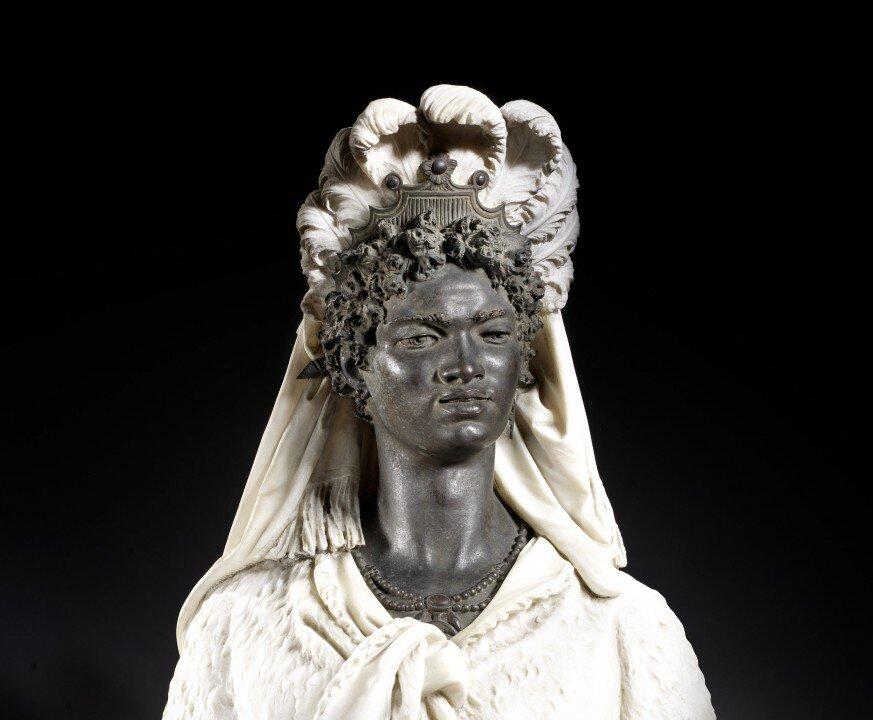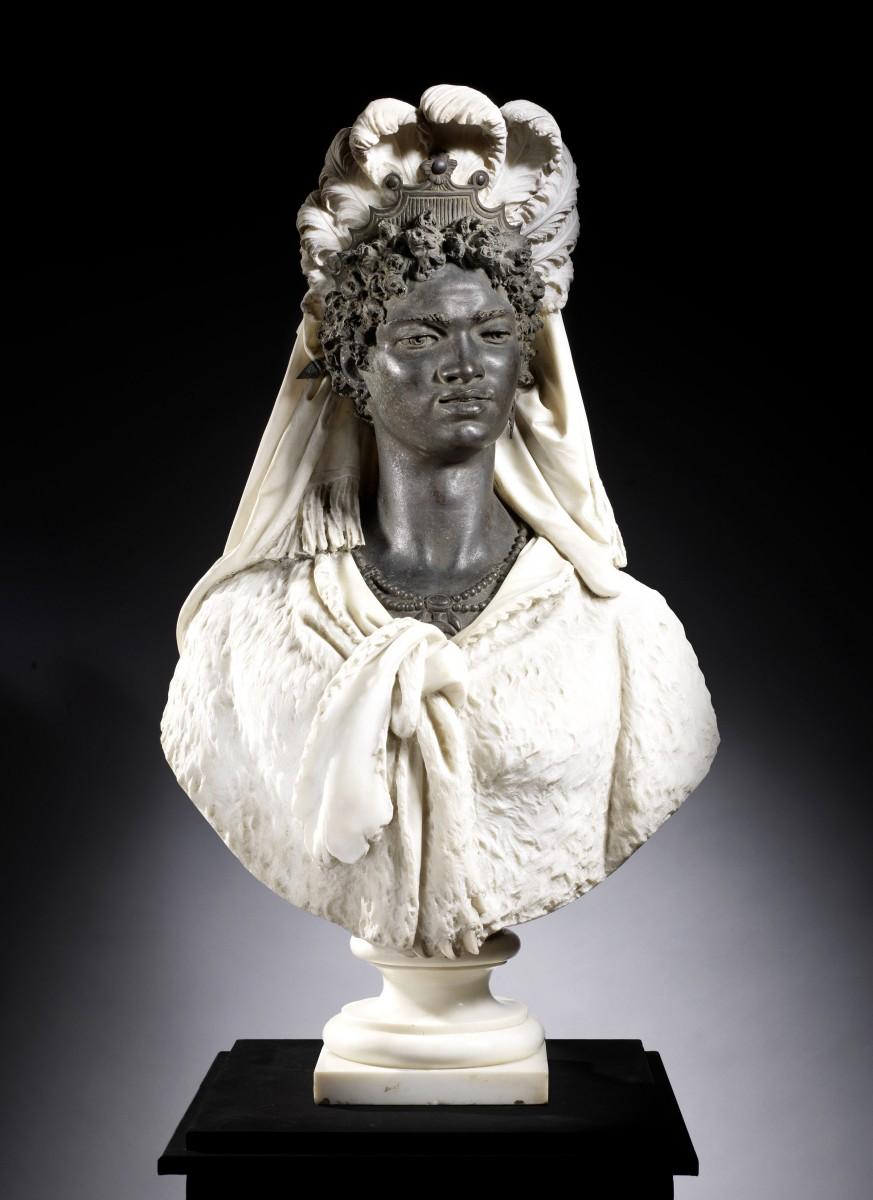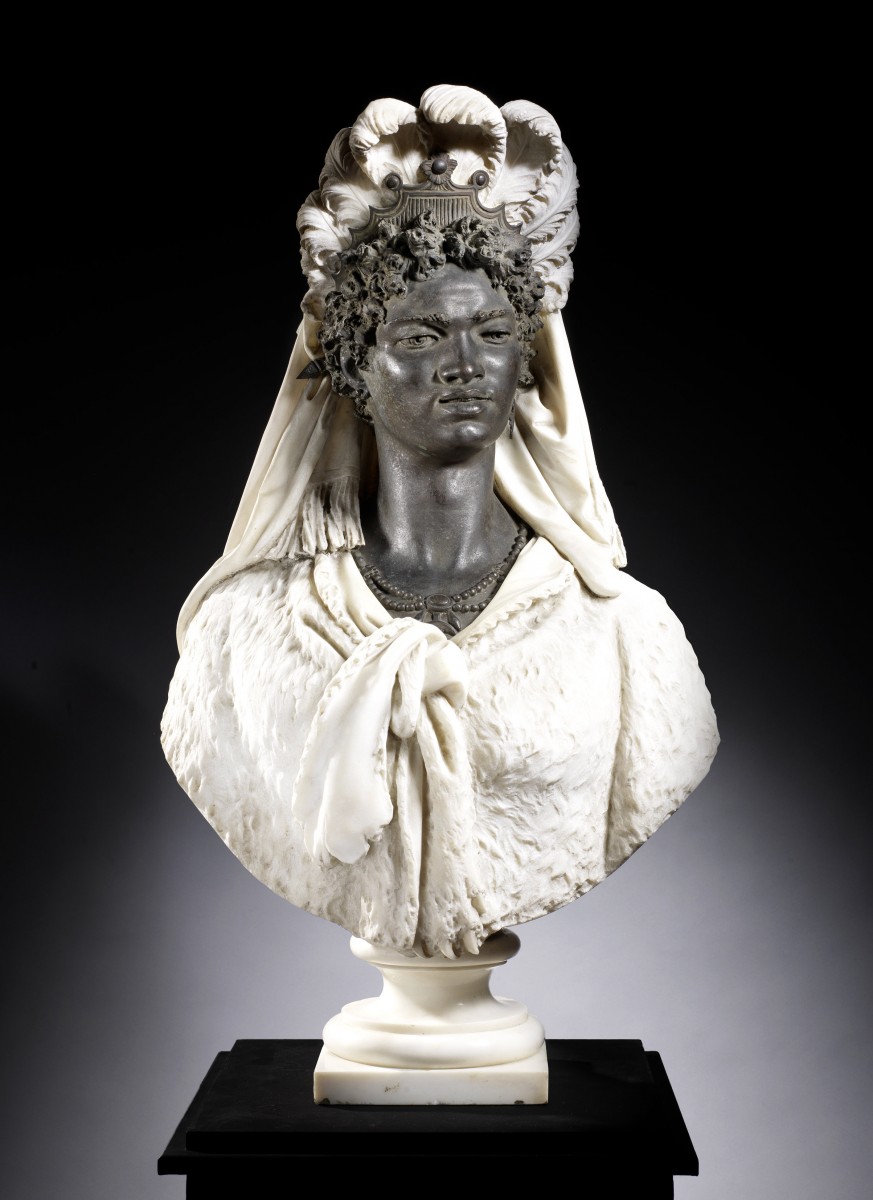The 19th-century bust of a fictional queen ignited collectors’ fascination at the recent Bonhams sale in London. The hammer went down at £97,250 (US$152,000) after a packed room of bidders competed for the sculpture.
The striking figure depicts the fictional African queen, Selika, a principal character in German composer Giacomo Meyerbeer’s opera “L'Africaine.” In a dramatic tale of love and loss, Selika takes desperate measures to save her lover’s life by marrying her captor, a Portuguese explorer.
“This striking and unusual figure is a stunning example of 19th century sculpture, which deserves a great deal of admiration,” François Le Brun, head of European Furniture commented in a press release. “It has been exciting to see so much interest in this fascinating piece, which goes hand in hand with a dramatic story.”
Italian sculptor Luigi Pagani (1837–1904) used white marble and patinated bronze for the imposing 33-inch-tall bust.
Pagani’s inspiration was born from Meyerbeer’s tragic opera, which was first performed in Paris on April 25, 1865, to rapturous applause, according to Bonhams.
Description by Bonhams
A fine example of French “grand opera,” very popular toward the latter 19th century, “L'Africaine” stages impressive scenes with elaborate costumes and spectacular finales. It tells a mythical story set around the Portuguese explorer Vasco da Gama and based on the discoveries of the new world.
Nelusko and Selika, both king and queen of their native East India, are found and captured by the Portuguese explorer and returned to Lisbon as proof of his discovery of new and uncharted territory. The jealous Nelusko loves Selika, but she decides to marry Vasco da Gama in a bid to secure Nelusko’s life.
Later, da Gama is reunited with his former love, Inez, who believed him dead. The opera ends with Inez and Nelusko in despair over the marriage, taking their own lives by inhaling the scent of a deadly blossom from the manchineel tree. It is an opera rich with tales of romance, intrigue, and despair.
Source: Bonhams
The Epoch Times publishes in 35 countries and in 19 languages. Subscribe to our e-newsletter.






